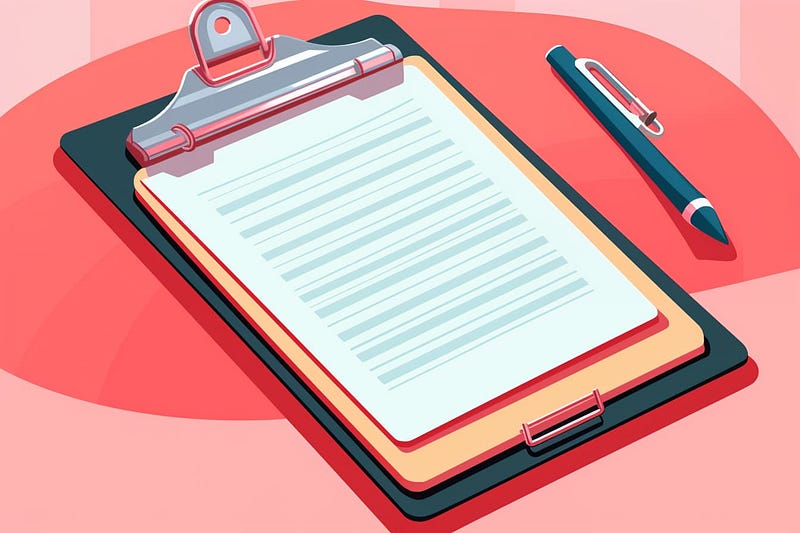The Top Project Management Skills You Need as a Freelancer
Learn how to effectively manage your client work.

It all starts with a single client. One client becomes two clients, and now you're keeping track of two sets of deadlines and deliverables. Two becomes four, and suddenly, you're juggling a lot of projects with moving parts.
Almost all freelance work requires some project management skills. Your clients aren't going to manage the work for you: it's up to you to determine your bandwidth, communicate with your clients, and deliver as promised.
Before I became a freelance writer, I was a product manager at a tech company — a job that required a significant amount of project management. Those skills made it a lot easier to pivot from a corporate life to a freelance life.
If you're feeling overwhelmed by project management, here are the top skills you should look to improve.
Organization
Once you move beyond a single project, a simple spreadsheet won't be enough. You'll need a system to organize everything your clients give you.
My clients give me a lot of info, from a project brief to internal messaging docs. I also end up with research, interviews, and other stuff to get my work done. At this point, I've worked with more than 50 different clients. Without strong organization skills, the work would be much, much harder — and take more time.
As soon as you're working with more than one client, you should use a project management tool. The tool you use depends a lot on the type of work you do. For example, do you need a client-facing tool so clients can collaborate with you, or is it just you? Do you need to keep track of a lot of subtasks within a project, or are you mostly keeping track of big deliverables for a client?
I use Trello to keep track of client work, and move my deliverables through different stages. Additionally, I also use Airtable to keep track of client payments for each deliverable. I recently worked with a brand designer, and he used Notion to keep track of the different phases of our project. Both Trello and Notion make it easy to collaborate. You could also check out tools like Asana or ClickUp.
Every client has the same set of folders in my Google Drive, which are automatically created when I onboard a new client. That way, if I'm looking for something later (like an interview transcript), I know where to find it. I add the client's primary GDrive folder to both Airtable and Trello, so it's easy to link to my client's files as I'm working.

Prioritization
If you're juggling a lot of client work — particularly if you have a lot of subtasks within a project — you need to determine the "next thing" you need to work on. Whether you organize your work by day, week, or month, you need to know what to focus on when you sit down at your computer in the morning.
Prioritization is often driven by due dates. However, for larger projects, you may have a smaller breakdown of tasks to complete prior to the due date. For example, the only thing I have "due" to my client might be a blog post. But ahead of that, I need to schedule an interview, do research, and set aside some time for self-editing — none of them have a specific deadline.
The hardest part about prioritization is when you have competing priorities. Maybe you have a deliverable due for a client, and another client asks you to make changes to something you've already delivered. How do you prioritize?
Here are some ways to think about prioritization if you're in a pinch:
- What does your contract say about turnaround time? Don't let clients demand things outside of the contract (like a last-minute change)
- Does your client have a firm deadline on their end? Prioritize those that do over those that don't.
- Prioritize new clients over existing clients, if you feel like the existing client would be understanding and you need to establish a good relationship with the new client.
- Consider the business risk of changing priority on a small project versus a larger one.
True project management involves a lot of decision-making (sometimes without much time to think about the decision). You need to sharpen your decision-making skills so you can trust your instincts and not get paralyzed when facing competing priorities.
Time management and productivity
Without a boss looking over your shoulder (clients don't count!), you are solely responsible for managing your own time. Whether you stick to a rigid daily schedule or follow a more fluid one, you've got to find a system that works for you.
I work in blocks of time during the day— a morning block and an afternoon block filled with tasks that need to get done. I organize my day around when I am most productive, getting the bulk of my work done in the morning and scheduling meetings in the afternoon when I don’t need intense focus. I use Calendly to control access to my calendar, so people can't schedule meetings during my focus time.
I also have some "buffer time" built into my day. If something goes off the rails, or work takes longer than expected, I can catch up in the evening. This approach works for me mentally, rather than letting work spill into another day. I also have an "extra" day built in every week — Fridays — to accommodate any additional client needs or to catch up from any off-track tasks from the week.
Your time management should also include time set aside for "internal work" on your business. If you think of your entire business as one enormous project, you have to manage everything that keeps the ship afloat. This includes things like sending invoices, marketing yourself, or updating your portfolio website.
Depending on the frequency, set aside time weekly or monthly to do this type of work. Make sure it's built into your schedule, so it doesn't always get de-prioritized behind client work. Working ON your business is just as important as doing work FOR your business.

Delegation
You may reach a point in your business where your project management includes delegating some work to others. You might subcontract some of your client work, or hire a virtual assistant or bookkeeper, all as a way to reduce your workload.
Even though delegating tasks takes some work off your plate, you still need to manage the other person. Make sure you allocate time in your day (or week) for reviewing work, communicating with other people, assigning tasks, and paying that person.
Keep in mind that delegation is always harder in the beginning. You'll need to work more intensively with that person as they learn your process and their assigned work. It may feel like you haven't really gained any time back in your day.
But, if you're convinced that the person will eventually free up some of your time, stick with it for a few weeks or months (depending on the complexity of the work). You should notice a difference in how much hand-holding the person needs over time.
Setting boundaries
Contrary to what the corporate world would have you believe, effective freelance project management is NOT saying "yes" to everything.
When I worked as a product manager, I had a mantra: scope, quality, and time. Think of it this way:
- If you have a specific scope (your deliverable) and a standard of quality, it will take X amount of time
- If a client wants the same quality and faster, you need to reduce the scope.
- If a client wants the same scope and faster, they might sacrifice quality because you'll be rushing.
Hold firm to your quality. Scope and time are the variables for your work. Clearly outline the project's scope in your contracts and clearly communicate your turnaround times to clients. If you do those two things, that's half the battle with project management.
Want to learn more about the right tools to help you stay organized? Check out my free guide: 17 Smart Tools Solopreneurs Need to Start, Grow, and Scale.
This article contains affiliate links which means if you sign up, buy, whatever, I earn a small amount.







